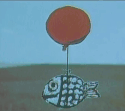|
On the subject of scuttling, the WWI German fleet interned at Scapa Flow scuttled themselves by opening their seacocks:quote:Around 10:00 a.m. on 21 June 1919, Reuter sent a flag signal ordering the fleet to stand by for the signal to scuttle. At about 11:20 the flag signal was sent: "To all Commanding Officers and the Leader of the Torpedo Boats. Paragraph Eleven of to-day's date. Acknowledge. Chief of the Interned Squadron."[24] The signal was repeated by semaphore and searchlights.[25] Scuttling began immediately: seacocks and flood valves were opened and internal water pipes smashed.[26] Portholes had already been loosened, watertight doors and condenser covers left open, and in some ships holes had been bored through bulkheads, all to facilitate the spread of water once scuttling began.[26] One German ship commander recorded that before 21 June, seacocks had been set on a hair turning and heavily lubricated, while large hammers had been placed besides valves.[27]
|
|
|
|

|
| # ? Jun 7, 2024 14:21 |
|
Wait until the biggest ship you can see is traversing the canal, then fly a plane into that. (Hello CIA dudes, hope you're having a nice day!)
|
|
|
|
|
Cthulu Carl posted:I think that goon was thinking of the Admiral Graf Spee which was scuttled. No it's specifically the Bismarck. It's an old book (and not a proper academic one) so it may well be inaccurate. I think the line was "it was unclear whether the Bismarck was sunk by a torpedo from HMS XYZ or someone opened the seacocks".
|
|
|
|
i was just reading about the NR-1 minisub and on one of their trial runs, they were kinda hosed for a second because the ballasts were padlocked as some kind security measure
|
|
|
|
Umbra Dubium posted:Wait until the biggest ship you can see is traversing the canal, then fly a plane into that. What if the terrorists ordered a ship full of Orbeez™ from Alibaba and then blew it up in the canal?
|
|
|
|
EasilyConfused posted:Yeah, the scuttling thing is one of those Nazi technological superiority myths. The truth is that the Bismark had a ton of design faults, which isn't surprising since it was basically an up-scaled WWI design from a country that had missed out on all the improvements in capital ship design during the interwar period. Didn't almost all the big German ships have a serious design flaw that caused any major damage to the stern of the ship to be catastrophic? Like the whole stern above the rudders/screws could break off
|
|
|
|
Everyone who has surveyed Bismark's wreck (Robert Ballard, James Cameron, etc.) has come to the conclusion that Bismark was scuttled rather than sunk.
|
|
|
|

|
|
|
|
McGavin posted:Everyone who has surveyed Bismark's wreck (Robert Ballard, James Cameron, etc.) has come to the conclusion that Bismark was scuttled rather than sunk. Yeah, I take that back. The source I was remembering was pre-Cameron. The ship was sinking, but hadn't yet sunk when it was scuttled. How much longer it would have floated is hard to say. EasilyConfused fucked around with this message at 22:34 on Mar 30, 2021 |
|
|
Z the IVth posted:No it's specifically the Bismarck. It's an old book (and not a proper academic one) so it may well be inaccurate. I think the line was "it was unclear whether the Bismarck was sunk by a torpedo from HMS XYZ or someone opened the seacocks". Surface ships of that era were remarkably hard to sink short of a magazine explosion, at least if they didn't do something exceedingly dumb like the British did in WW1 and pile up gunpowder around the guns and leave blast doors open so they could fire faster (an extremely OSHA practice, even for the military in wartime). There's a lot of examples of ships taking just insane damage and not sinking immediately on pretty much all sides. However, the key word there is "immediately". Just because a ship was still afloat did not mean that it was saveable. Bismark was gonna sink sooner rather than later, and while it's true that the opening of the seacocks by her own crew significantly hastened the sinking, but that might have been the difference between sank real quick and sank in an hour or two after the British dropped everything but the kitchen sink on it. The idea that it was just gonna keep motoring in a slow circle forever if it hadn't been scuttled is dumb as hell. The British sank it, the German sailors just helped speed it up to prevent possible capture, which was itself highly unlikely for a variety of reasons.
|
|
|
|
|
FuturePastNow posted:Didn't almost all the big German ships have a serious design flaw that caused any major damage to the stern of the ship to be catastrophic? Like the whole stern above the rudders/screws could break off Yes - they had three propellers unlike virtually every other 20th century capital ship which had two or four. Triple screws have advantages in fast merchant ships but when you factor in survivability and hull strength those advantages quickly fall away, especially for battleships. The remaining benefits were a marginally more efficient use of tonnage than a twin-screw design (but not as an efficient use of space as a quad-screw one) and a level of redundancy in that the Bismarck and other German 3-screw battleships could maintain service speed on two engines alone, meaning that one could be disabled without affecting performance and in normal service you get the same speed with greater efficiency. The downside is that the keel has to end at the central propeller, leaving the rest of the stern structure overhanging the central prop and the wing propeller tubes relatively unsupported. The Germans also favoured twin 'skeg' rudders fitted midway between the centre prop and the outboard one on each side, meaning the rudders were only supported at their top end and were relatively exposed to shells and torpedo hits. Quad- and twin-screw warships could carry the keel right back to the rudder, fully supporting the stern, hinging the (single) rudder along its full length and with the rudder in the centerline it was relatively better protected by the overhanging stern. Edit: Azathoth posted:Surface ships of that era were remarkably hard to sink short of a magazine explosion, at least if they didn't do something exceedingly dumb like the British did in WW1 and pile up gunpowder around the guns and leave blast doors open so they could fire faster (an extremely OSHA practice, even for the military in wartime). To the extent that the main reason given for why one of the RN's battlecruisers - HMS Tiger - survived Jutland without succumbing to a turret fire or magazine explosion is that the ship and crew were brand new and badly trained - so they hadn't had all the good practices drilled out and the bad habits drilled into them yet in the name of rate of fire over survival. Azathoth posted:There's a lot of examples of ships taking just insane damage and not sinking immediately on pretty much all sides. However, the key word there is "immediately". Just because a ship was still afloat did not mean that it was saveable. Yeah, the evidence from the wreck is that many of the British shells and torpedoes had failed to penetrate the Bismarck's main armour protection, but she had taken a few major hull-opening hits in less heavily armoured parts at her bow and stern to start flooding of the lower compartments while her decks and superstructure had been set ablaze and mostly reduced to wreckage by repeated HE hits. That alone was enough to render any attempts at damage control impossible. And the ship had already been militarily defeated by the disabling of all the fire control and gunnery equipment. BalloonFish fucked around with this message at 22:50 on Mar 30, 2021 |
|
|
|
BalloonFish posted:Yeah, the evidence from the wreck is that many of the British shells and torpedoes had failed to penetrate the Bismarck's main armour protection, but she had taken a few major hull-opening hits in less heavily armoured parts at her bow and stern to start flooding of the lower compartments while her decks and superstructure had been set ablaze and mostly reduced to wreckage by repeated HE hits. That alone was enough to render any attempts at damage control impossible. And the ship had already been militarily defeated by the disabling of all the fire control and gunnery equipment. To be fair, wreck analysis says it likely would've stayed afloat for a while had she not been scuttled. She surely would've sunk eventually, but its been estimated it would've taken from half a day to a full day to founder. quote:Gerhard Junack, the chief engineering officer, ordered his men to set the demolition charges with a 9-minute fuse but the intercom system broke down and he sent a messenger to confirm the order to scuttle the ship. The messenger never returned, so Junack primed the charges and ordered his men to abandon ship. They left the engine spaces at around 10:10.[126][127] Junack and his comrades heard the demolition charges detonate as they made their way up through the various levels.[128] Oels rushed throughout the ship, ordering men to abandon their posts. On the battery deck a huge explosion killed him and about a hundred others. Bismarck weathered the fight rather well for what its worth. CommieGIR fucked around with this message at 23:26 on Mar 30, 2021 |
|
|
|
https://i.imgur.com/6ZaRL9w.mp4
|
|
|
|
Azathoth posted:Surface ships of that era were remarkably hard to sink short of a magazine explosion, at least if they didn't do something exceedingly dumb like the British did in WW1 and pile up gunpowder around the guns and leave blast doors open so they could fire faster (an extremely OSHA practice, even for the military in wartime). Probably the best example of this is the Battle of Midway. All four of the Japanese carriers at the battle were scuttled by Japanese torpedoes, not sunk by air attack. American bombs gutted them, turned them into drifting, fiery hulks, but didn't actually sink any of them. The Japanese sank them with destroyer-fired torpedoes in part to prevent the Americans from trying to capture the hulks and glean intelligence from them.
|
|
|
|
CommieGIR posted:Bismarck weathered the fight rather well for what its worth. If by "weathered the fight," you mean "didn't sink," sure. Not usually how combat effectiveness is measured.
|
|
|
|
EasilyConfused posted:If by "weathered the fight," you mean "didn't sink," sure. Not usually how combat effectiveness is measured. Well: Didn't blow up and sink promptly in a matter of seconds is a good comparison.
|
|
|
|
https://i.imgur.com/UVxmqCF.mp4
|
|
|
|
The arrow IS distracting once you see it.
|
|
|
|
CommieGIR posted:Well: Didn't blow up and sink promptly in a matter of seconds is a good comparison. Like the unfortunate HMS Hood, for example.
|
|
|
|
Thought we’d a get a twofer.
|
|
|
|
I’ve seen too many of those videos and I can longer go through rail crossings, even ones with lights, bells, and arms, without instinctively looking for trains.
|
|
|
|
 Downed power line
|
|
|
|
Platystemon posted:I’ve seen too many of those videos and I can longer go through rail crossings, even ones with lights, bells, and arms, without instinctively looking for trains. Just gun it when you get to 'em. A lot have humps where the tracks are so you can get a sweet jump if you get up to speed enough.
|
|
|
|
Ornamental Dingbat posted:A few of our trucks caught a bit of wind in Buffalo on Friday, the drivers walked away from both with a few minor scrapes and bruises. The police report mentioned 70mph wind gusts. 
Ornamental Dingbat fucked around with this message at 01:14 on Mar 31, 2021 |
|
|
|
so seeing as the arms are up and the lights are off, how hosed is the railroad here
|
|
|
|
Sagebrush posted:so seeing as the arms are up and the lights are off, how hosed is the railroad here Never trust a traffic control device.
|
|
|
|
There really need to be commemorative "I fought a train (and the train won)" t-shirts for this sort of occasion.
|
|
|
|
Sagebrush posted:so seeing as the arms are up and the lights are off, how hosed is the railroad here If I had to guess, justfrom my general knowledge of the world, that everybody even remotely connected to this is pretty hosed. Both truck drivers, the train engineer, the guy who inspected the signal last, probably even the dashcam owner.
|
|
|
CommieGIR posted:Well: Didn't blow up and sink promptly in a matter of seconds is a good comparison. Since this is the OSHA thread and everything the British did at the Battle of Jutland (1916) is dumb as poo poo, I think I'll elaborate on this part a bit. See, one of the biggest dangers on a warship ever since they started carrying guns is that somehow an enemy shot or a fire caused by an enemy shot will ignite all of your propellant (gunpowder originally, cordite by WW1), but there's a balance to be struck between having said propellant available for your use in flinging shells at the enemy and protecting your own propellant from being set aflame by enemy fire. The actual safety methods they used are pretty straightforward, so I won't go into them in detail, but it all boils down to storing all of the propellant in the most heavily armored part of the ship, reducing the amount of propellant outside said area at any given time, and making sure that there were no openings between lesser armored parts of the ship and said propellant storage down which an explosion might travel. Pretty straightforward stuff. Well, by the Battle of Jutland, the British had decided to basically say "gently caress all that safety bullshit" on the theory that if you destroy your enemy fast they can't shoot back at you as much, so they set up a conveyor belt from their magazine straight up to their guns. Okay well it wasn't quite that bad, but they opened up a bunch of those safety doors so they could move propellant through faster and staged extra propellant around the guns so that they could start the reloading process faster. In drills, I'm sure that this produced quite impressive rates of fire, what with not having to worry about things exploding around the guns and such. What this meant in battle was that an unlucky shell hit could ignite the powder stored locally in the turrets, which would then send an explosion down those opened safety doors, straight into the magazines, where it would produce what military scientists term a "gigantic loving explosion". At the Battle of Jutland, three of Britain's bright shiny battlecruisers went kablooey when hit by relatively few German shells because, as it turns out, setting up an "explosion funnel" from your guns to your magazines is a really, really, and I just can't stress this enough, really bad idea, even if it lets you shoot faster. Oh, and just to put a cherry on top of the poo poo sundae, it turns out that the propellant that the British were using was an order of magnitude more prone to flash explosions than what the Americans or the Germans were using. Each of those battlecruisers had a thousand or more sailors, survivors from each ship were in the single digits.
|
|
|
|
|
Azathoth posted:At the Battle of Jutland, three of Britain's bright shiny battlecruisers went kablooey when hit by relatively few German shells because, as it turns out, setting up an "explosion funnel" from your guns to your magazines is a really, really, and I just can't stress this enough, really bad idea, even if it lets you shoot faster. Oh, and just to put a cherry on top of the poo poo sundae, it turns out that the propellant that the British were using was an order of magnitude more prone to flash explosions than what the Americans or the Germans were using. Each of those battlecruisers had a thousand or more sailors, survivors from each ship were in the single digits. It wasn't just that too: There was a massive deficiency in training on handling the propellant (this is such an OSHA thing too) where even where they TRIED to ensure safe propellant handling, they were just stacking the stuff in the turrets because of a false sense of safety versus gunpower of old, a big no-no. quote:The memoirs of Alexander Grant, Gunner on Lion, suggest that some British officers were aware of the dangers of careless handling of cordite: Because the Germans handled their power more safely, they withstood more punishment before sinking or having magazine explosions. Like you said, the British lost 3 battlecruisers likely due to poor powder handling safety alone. CommieGIR fucked around with this message at 02:33 on Mar 31, 2021 |
|
|
|
don't climb icebergs https://i.imgur.com/uZsq2tf.mp4 they were both fine but just don't do it
|
|
|
|
Shoulda stuck with chasing waterfalls
|
|
|
|
gently caress, reminds me of an old science show where they made two-coloured ice cubes to demonstrate how bodies of ice flip over in time.
|
|
|
|
Memento posted:don't climb icebergs The Shackleton antarctic expedition's ship was caught for a yearand crushed in ice. They then spent a year camping on increasingly smaller and smaller ice floes waiting for the currents to take them to open water, living off seals they caught. When the ice broke up, they abandoned the ice pack in open converted lifeboats and rowed toward Elephant island, several hundred miles away. It took them 3 days of continuous hard rowing to get clear of the ice pack. They were so exhausted they were falling asleep at the oars, their hands blistering and skin falling off. Only then did they touch, approach or land someone on an iceberg to use a stove to warm up some hot soup and only when their choices had become condensed to A: land the cook on an iceberg to get something hot into us or B: die of exposure and exhaustion. They watched with hearts pounding the whole time and pulled the cook off the moment the stove was cool enough to touch. Even though the group had been fighting for survival for two years at that point and was on the brink of death from exposure, landing a man on an iceberg was seen as incredibly risky. Then there's these two loving yahoos.
|
|
|
|
CommieGIR posted:It wasn't just that too: There was a massive deficiency in training on handling the propellant (this is such an OSHA thing too) where even where they TRIED to ensure safe propellant handling, they were just stacking the stuff in the turrets because of a false sense of safety versus gunpower of old, a big no-no. Not to mention, British battlecruisers shed heavier armor for more speed under the same idea that big guns and speed would lead to a quick victory, while German battlecruisers had smaller guns and heavier armor. Light armor+poor ammo handling+direct paths for fire to hit the magazines in an emergency was a bad day.
|
|
|
|
They really need to make a big production dramatization of the Shackleton expedition, call it Endurance after the ship. No need for a monstrous CGI bear to make it interesting!
|
|
|
|
Z the IVth posted:Do ships not have some way of letting water in that could be used to scuttle them? I recall reading about one Bismarck sinking theory was that someone opened some valve somewhere and the whole ship just went down in fairly short order when everything flooded. There are plenty of valves on ships that could eventually sink them. Hell, take the tank tops off the ballast tanks and run the pumps wide open. Or just open up the sea chest. The better option isn't to sink the ship. It's to capsize it. Ballast up one side; those ships are pretty top-heavy when loaded up anyway.
|
|
|
|
Blindeye posted:Not to mention, British battlecruisers shed heavier armor for more speed under the same idea that big guns and speed would lead to a quick victory, while German battlecruisers had smaller guns and heavier armor. And my understanding is that the Germans also had vastly superior mechanical targeting computers, so even despite the British battlecruisers higher speed, the Germans were still able to hit them regularly.
|
|
|
|
Uncle Enzo posted:The Shackleton antarctic expedition's ship was caught for a yearand crushed in ice. They then spent a year camping on increasingly smaller and smaller ice floes waiting for the currents to take them to open water, living off seals they caught. When the ice broke up, they abandoned the ice pack in open converted lifeboats and rowed toward Elephant island, several hundred miles away. It took them 3 days of continuous hard rowing to get clear of the ice pack. They were so exhausted they were falling asleep at the oars, their hands blistering and skin falling off. Only then did they touch, approach or land someone on an iceberg to use a stove to warm up some hot soup and only when their choices had become condensed to A: land the cook on an iceberg to get something hot into us or B: die of exposure and exhaustion. Some pretty good vignettes ITT today.
|
|
|
|

|
| # ? Jun 7, 2024 14:21 |
|
tiktok is apparently getting in on the OSHA game https://twitter.com/conor64/status/1377096175816335366 there's more in the twitter thread if you click through
|
|
|




















































